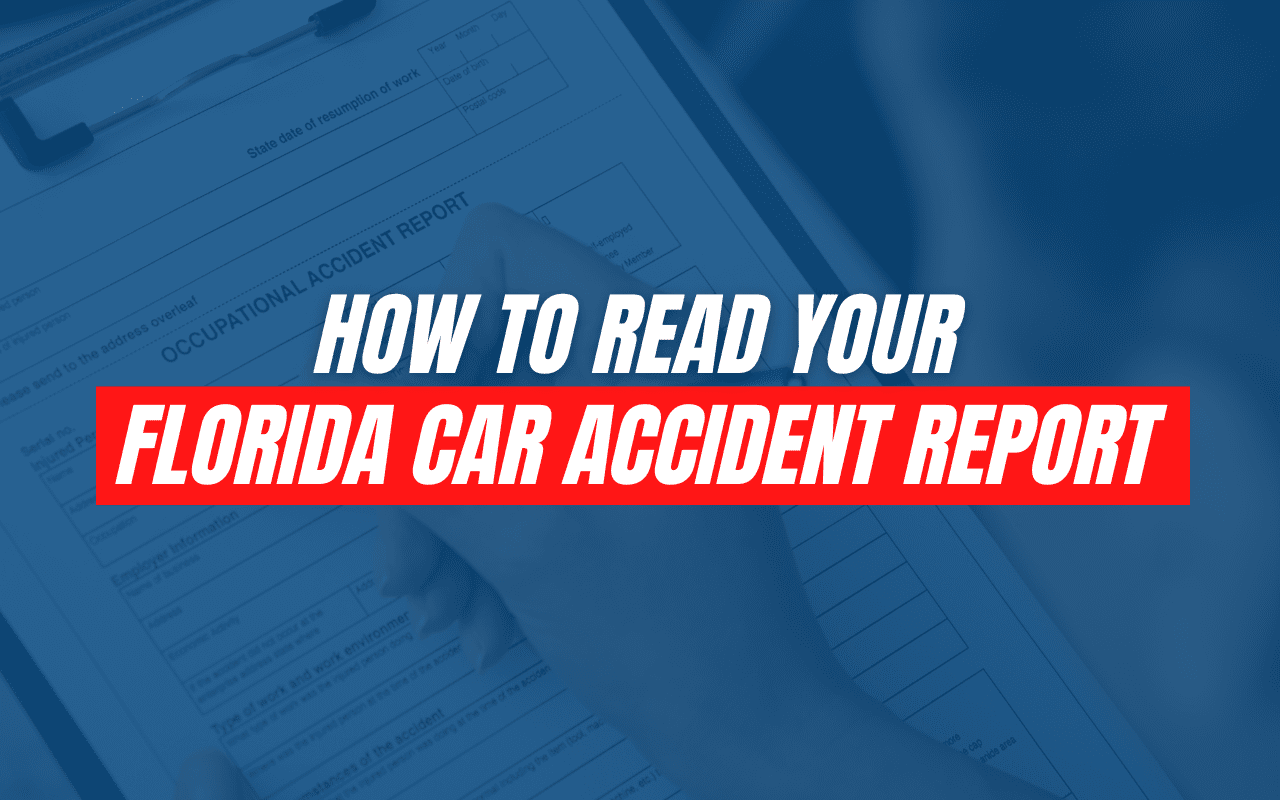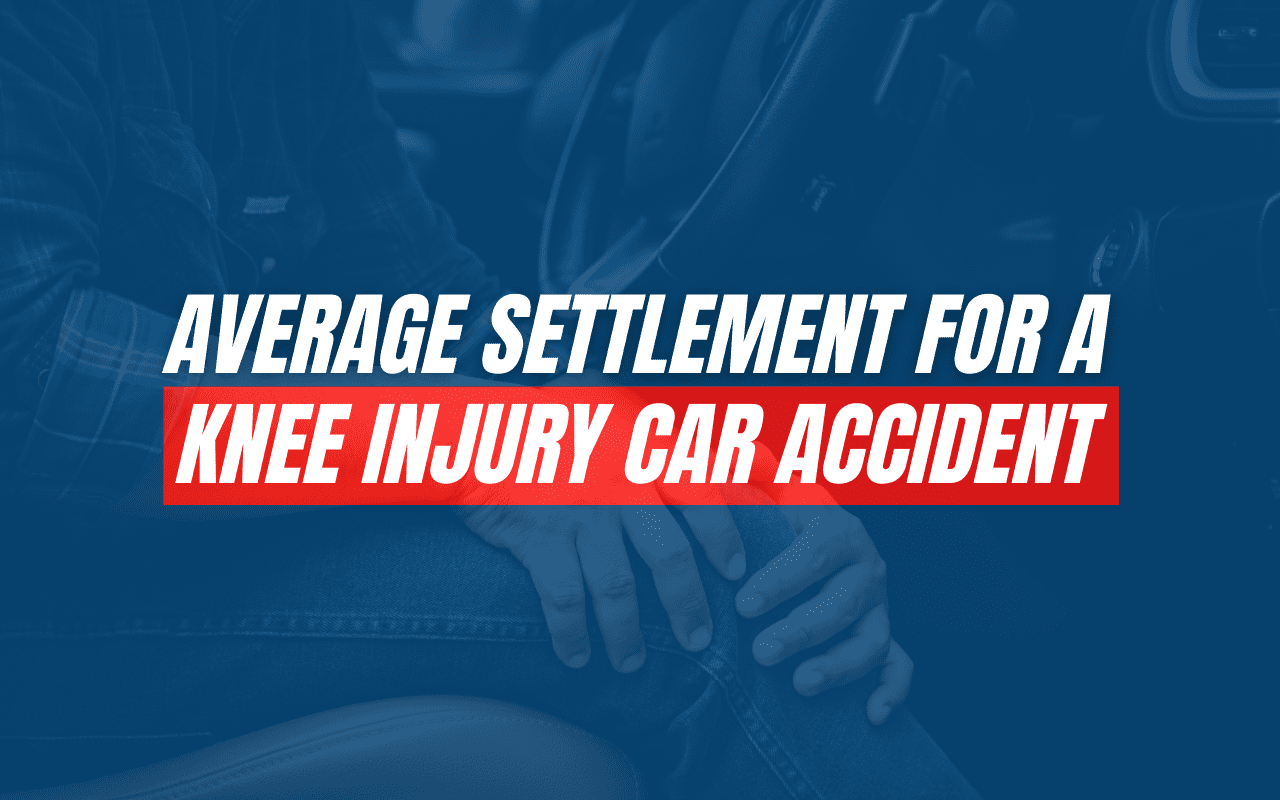
Expert Tips: How to Read Your Florida Car Accident Report
If you’ve been involved in a car accident in Florida, chances are you or another party involved filed an accident report with the Florida Highway Patrol. Whether your injuries are minor or severe, it’s important to have a copy of your accident report. These documents provide valuable information about your case and can help prove injury, which may be needed to pursue compensation down the line.
Understanding your Florida car accident report is essential for navigating the complex process of securing compensation and understanding the legal implications of the incident. This blog will provide expert tips on how to read your Florida car accident report, including key sections of the report, decoding the jargon used, steps to obtain your report, and analyzing the impact of the report on insurance claims and legal proceedings.
By familiarizing yourself with the contents of your car accident report, you can better understand the details of the accident, assess the extent of damage, and determine fault. This knowledge can be invaluable when dealing with insurance companies and legal professionals throughout the claims process.
Understanding Your Florida Car Accident Report
Understanding your Florida car accident report is the first step in navigating the aftermath of a car accident. The report, also known as a crash report, is a document created by a law enforcement officer who responds to the scene of the accident. It contains vital information related to the incident and the parties involved.
The Florida car accident report includes details such as the investigating officer’s name and contact information, the location of the accident, weather conditions at the time of the accident, and apparent damage to the vehicles involved. It also includes a description of how the accident occurred, including factors such as debris on the road or skid marks.
By reading and understanding your Florida car accident report, you can gain valuable insight into the circumstances surrounding the accident. This information can be useful when dealing with insurance companies, determining fault, and pursuing legal action if necessary.
Key Sections of the Report and Their Meanings
The Florida car accident report consists of several key sections that provide important information about the accident. Understanding these sections and their meanings can help you interpret the report effectively. Here are the key sections and what they mean:
- Investigating Officer: This section includes the name and contact information of the law enforcement officer who responded to the accident. It is essential for future reference and communication.
- Contact Information: This section contains the contact details of the parties involved in the accident, including drivers, passengers, and witnesses. This information is crucial for insurance claims and legal proceedings.
- Weather Conditions: This section describes the weather conditions at the time of the accident, such as rain, fog, or clear skies. Weather conditions can play a significant role in determining fault and assessing damages.
- Apparent Damage: This section provides an assessment of the visible damage to the vehicles involved in the accident. It helps insurers and legal professionals determine the extent of the damage and calculate compensation.
By paying attention to these key sections and understanding their meanings, you can gather important information about the accident and use it to support your insurance claims or legal case.
Decoding the Jargon: What Those Terms Really Mean
Car accident reports often contain jargon and technical terms that may be confusing to the average person. Decoding these terms is essential for understanding the report fully. Here are some common terms found in car accident reports and what they really mean:
- Personal Injury: This term refers to any physical or emotional harm suffered by individuals involved in the accident. It includes injuries such as broken bones, whiplash, or psychological trauma.
- Motor Vehicles: This term encompasses any type of vehicle involved in the accident, including cars, trucks, motorcycles, or commercial vehicles.
- Insurance Information: This section includes details about the insurance policies of the parties involved, such as the name of the insurance provider and policy numbers. It is crucial for insurance claims and determining coverage.
- Legal Assistance: This term refers to the support and guidance provided by legal professionals, such as car accident lawyers, who can help you navigate the legal aspects of your case and ensure your rights are protected.
Understanding these terms will enable you to better comprehend the report and communicate effectively with insurance companies and legal professionals throughout the claims process.
Steps to Obtain Your Florida Car Accident Report
Obtaining your Florida car accident report is an important step in understanding the details of your accident and pursuing compensation. There are several methods to obtain your report:
- Online Retrieval: Visit the Florida Department of Highway Safety and Motor Vehicles website and follow the step-by-step guide to access your report online.
- Alternative Methods: If online retrieval is not possible, you can request your report in person at the Florida Highway Patrol or by mail. Follow the instructions provided by the respective agencies to obtain your report.
Online Retrieval: A Step-by-Step Guide
The Florida Department of Highway Safety and Motor Vehicles (FLHSMV) website offers a convenient method to retrieve your car accident report online. Here is a step-by-step guide:
- Visit the FLHSMV website (flhsmv.gov) and navigate to the “Driver Reports” section.
- Look for the option to retrieve your crash report online and click on it.
- Enter the required information, such as your name, the date of the accident, and the report number if available. You may also need to provide additional details like the accident location or the names of the other parties involved.
- Follow the instructions to make a payment for accessing the report.
- Once the payment is processed, you can download and save your car accident report.
It’s important to note that there may be fees associated with accessing the official Florida law enforcement agency crash reports. Consult with an attorney to understand the implications of these fees regarding your compensation.
| Column Name A | Column Name B |
| Website | Florida Department of Highway Safety and Motor Vehicles |
| Required Information | Name, date of accident, report number (if available) |
| Payment Method | Online payment |
| Report Access | Download and save |
Alternative Methods: In-Person and Mail Requests
If online retrieval is not feasible, you can obtain your Florida car accident report through alternative methods. Here are two common options:
- In-Person Request: Visit the nearest Florida Highway Patrol (FHP) station or the law enforcement agency that handled your accident. Provide the necessary information, such as your name, the date of the accident, and any other details requested. The agency will process your request, and you can collect your report in person.
- Mail Request: Write a formal request letter to the Florida Highway Patrol or the appropriate law enforcement agency. Include the required information and any additional details necessary for processing your request. Mail the letter along with the appropriate fee to the agency’s address. The agency will process your request and mail the accident report to you.
It’s important to familiarize yourself with the specific procedures and fees associated with in-person and mail requests in your area, as they may vary depending on the agency and Florida statutes.
Analyzing the Impact of Your Accident Report
Your Florida car accident report has significant implications for insurance claims processing and legal proceedings. Understanding how insurance companies and legal professionals use your report can help you navigate your case effectively.
How Insurers Use Your Report in Claims Processing
Insurance companies rely on your car accident report to assess liability and determine the extent of damages in a claims process. They use the report to verify the facts of the accident, evaluate injuries, and calculate compensation. The report helps insurers understand the sequence of events, analyze contributing factors, and assign fault.
The Role of Your Report in Legal Proceedings
In legal proceedings, your Florida car accident report serves as crucial evidence to support your personal injury claim. It provides a detailed account of the accident and can help establish negligence or fault. The report may be used in negotiations with insurance companies or as evidence in a court trial. It can also assist in determining the damages you may be entitled to in a personal injury lawsuit.
Need Help? Contact Florida Legal
Understanding your Florida car accident report is crucial for navigating insurance claims and legal proceedings. Decoding the technical terms, obtaining the report promptly, and analyzing its impact are key steps. Insurers rely on these reports for processing claims, making accuracy vital. Legal assistance can be invaluable, especially if errors need correction or if disputes arise. At Florida Legal, we offer expert guidance to help you understand and leverage your accident report effectively. For personalized assistance tailored to your situation, schedule a free consultation with our team today.



